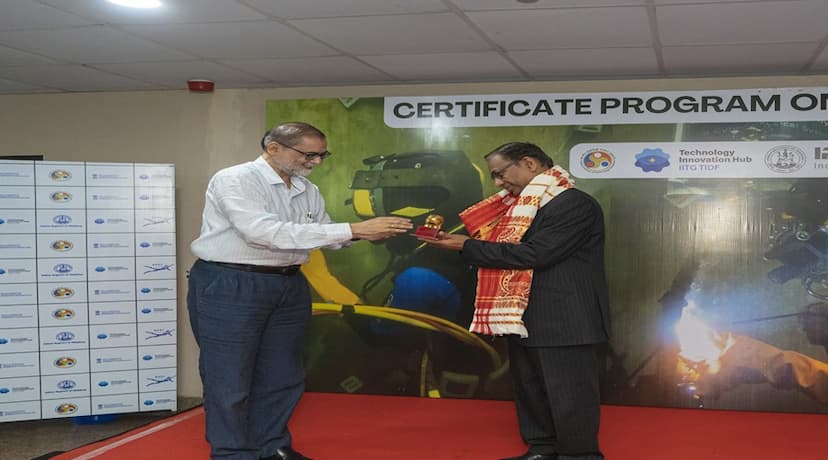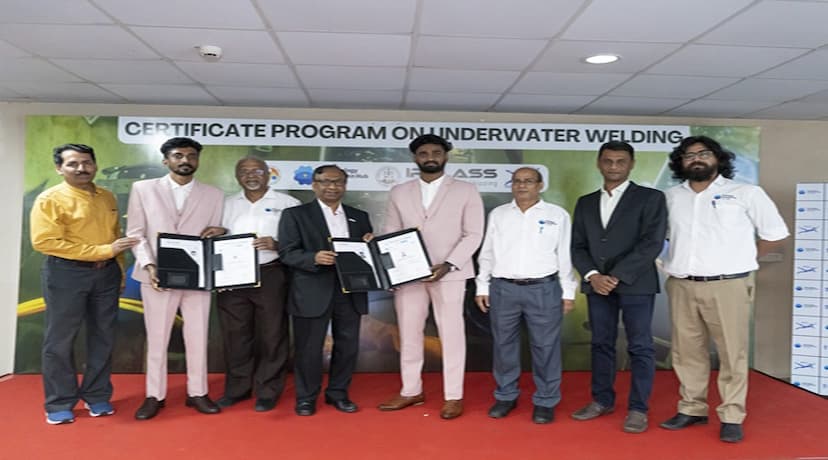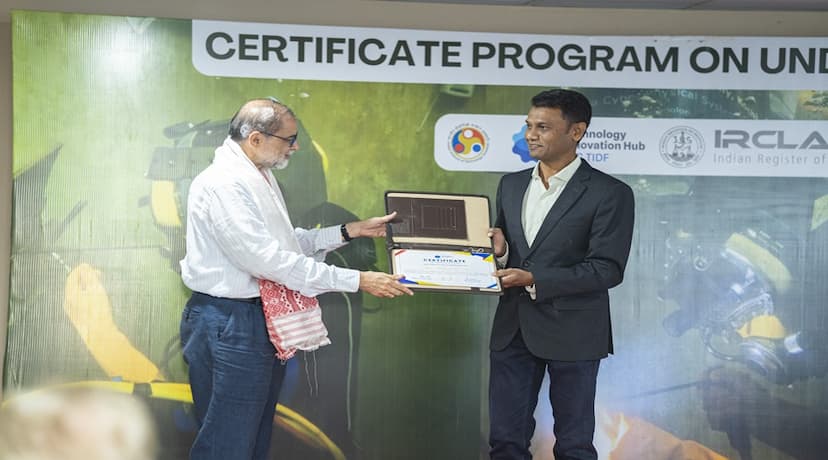IIT Madras researchers 2020: Great work shows turmeric can improve outcomes

IIT Madras researchers have shown that the active principle from turmeric and curcumin can enhance cancer cell death caused by a protein called ‘TRAIL.’
There have been considerable efforts in developing therapeutic agents that trigger apoptotic death of cancer cells.


Its ability to selectively kill cancer cells by ‘apoptosis’ has resulted in a number of preclinical studies being carried out all over the world.
In cancer treatment, it is important to induce death of the cancer cells preferentially without extensive damage to healthy cells in the body.
‘Apoptosis’, or programmed cell death, is generally preferred over the more aggressive and premature ‘necrosis’ for killing cancer cells because it releases fewer cellular components that trigger inflammation than the latter.

IIT Madras researchers who took up this work comprised Professor Rama Shanker Verma, Bhupat and Jyoti Mehta School of Biosciences, Department of Biotechnology, IIT Madras.
The results of this work by IIT Madras researchers were recently published in the reputed peer-reviewed journal Pharmacological Reports.
The paper was co-authored by Ms. Sridevi Surapally, Ms. Madhumathi Jayaprakasam and Professor Verma.

Speaking about the work of IIT Madras researchers Professor Rama Shanker Verma, Bhupat and Jyoti Mehta School of Biosciences, Department of Biotechnology, IIT Madras said despite strong anti-tumor activity of TRAIL in pre-clinical studies, clinical trials results have hitherto been unsatisfactory because cancer cells seem to acquire resistance against TRAIL upon long-term exposure.

Several studies have focused on natural compounds that could significantly enhance TRAIL-mediated apoptosis at non-toxic concentrations.
The IIT Madras researchers chose curcumin, the yellow part of the common turmeric that is used in daily cooking, as a sensitizer of TRAIL-resistant cancer cells to apoptosis.

Curcumin is already known to be a potent anti-cancer agent because of its ability to inhibit carcinogenesis and induce apoptosis in various cancer cells.
Its function as a sensitizer to TRAIL has been shown in cases of prostate cancer, breast cancer, colon cancer and malignant glioma.
Apply Now – Adamas University, Kolkata West Bengal
IIT Madras researchers showed that treating leukaemia (blood/bone-marrow cancer) cells with curcumin sensitises the cells to TRAIL and results in more efficient cell death.
They performed studies using isolated leukaemia cells from cancer patients and found that non-toxic concentrations of curcumin can significantly increase the efficiency of TRAIL-induced cell death.
‘Our findings clearly show that even small concentration of curcumin could potentially enhance the sensitiveness of leukemic cells to TRAIL, said IIT Madras researchers.

This doubt arises because curcumin is known to be poorly absorbed into the blood from the gut and its bioavailability for therapeutic purposes is generally poor.
But IIT Madras researchers are hopeful that this difficulty will be circumvented soon. There are many studies ongoing around the world to increase the bioavailability of curcumin.
Compounds such as quercetin found in onions, green tea and piperazine, found in black and green pepper, have been shown by a few researchers to enhance absorption of curcumin by the body, added Professor Verma.
There are no confirmatory evidences yet, but such research, combined with observations made by the IIT Madras researchers can unleash newer effective and safe therapies for cancer.
Indian Institute of Technology Madras (IITM) was established in 1959 by the Government of India as an ‘Institute of National Importance.’
The activities of the Institute in various fields of Science and Technology are carried out in 16 academic departments and several advanced interdisciplinary research academic centres.
The Institute offers undergraduate and postgraduate programmes leading to B.Tech., M.Sc., M.B.A., M.Tech., M.S., and Ph.D., degrees in a variety of specialisations.
IITM is a residential institute with more than 580 faculty and 9,500 students. Students from 18 countries are enrolled here. IITM fosters an active entrepreneurial culture with strong curricular support and through the IITM Incubation Cell.
IITM has been ranked No.1 in the ‘Overall’ Category for the second consecutive year in India Ranking 2020 released by National Institutional Ranking Framework, Ministry of Human Resources Development, Govt. of India.
The Institute has also been ranked No.1 in the Engineering Institutions category in the same Rankings for five consecutive years – 2016, 2017, 2018, 2019 and 2020. It was also adjudged as the ‘Top innovative Institution’ in the country in the Atal Ranking of Institutions on Innovation Achievements (ARIIA) 2019 launched by Innovation Cell of MHRD.
S Vishnu Sharmaa now works with collegechalo.com in the news team. His work involves writing articles related to the education sector in India with a keen focus on higher education issues. Journalism has always been a passion for him. He has more than 10 years of enriching experience with various media organizations like Eenadu, Webdunia, News Today, Infodea. He also has a strong interest in writing about defence and railway related issues.




